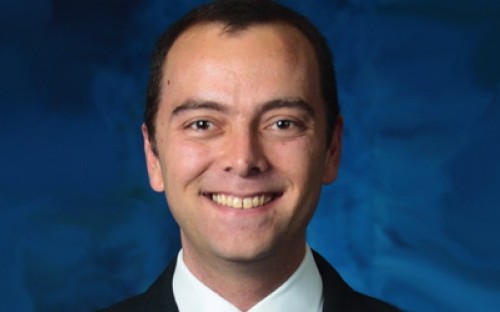What is the main aim of your club?
Through networking events and practical training, the mission of the club is to help every member find consulting-related job opportunities and be prepared for the case interviews.
Working with our career services office, we aim to enhance HKUST's reputation in the consulting world. Our vision is to ‘play smart’ in order not to overload ourselves or our connections and to achieve meaningful networking through the club activities.
Members participate in workshops (including a CV buddy program, case interview practice, mock interviews, Excel and PowerPoint training) and all kinds of networking events with guest speakers or information sharing with top consulting firms’ executives. Every member should have greater access, knowledge and understanding of the skills required and the recruitment procedures for the consulting world.
Why did you decide to do an MBA?
With more than ten years of experience in banking, an MBA was an opportunity to incorporate new beliefs, understand different points of view, challenge my skills, share my values, disseminate my knowledge, enlarge my networking and train my response to unexpected situations.
Unlike most Brazilian MBA applicants, I was not seeking an MBA in the US or Europe. An MBA at HKUST is preparing me to take my first steps into the Asian market.
The diversity of Hong Kong, the sound program provided by HKUST and the experience to be gained through discussions with specialists in Asia will consolidate my leadership skills and allow me to understand the cultural gaps between Latin America and Asia. An MBA in Hong Kong is opening doors to explore these opportunities.
Who is the most exciting speaker you have had this year?
Once or twice a month we have enrichment talks with top executives and last month the topic was Global Leadership. Our central campus was full of students, alumni and professors to receive Mr. Carlos Ghosn, the President and Chief Executive Officer of Nissan Motor Company Limited.
He spoke for about 15 minutes about cultural sensitiveness and leadership and then opened the floor for a Q&A for another 45 minutes. We discussed his long-term career objectives before he became a CEO as well as the innovations Nissan is planning for the future.
And last year the university invited the Chairman of Goldman Sachs Asset Management, Mr. Jim O’Neill for a presentation. Being the creator of the acronym BRICs, he gave us a very detailed explanation on the next developing countries, describing the fundamentals and the opportunities in each one of them.
To what extent are niche or specialised consultancies developing instead of the more general, strategic advice consultancies?
All companies are looking for their own competitive advantages in order to have a clear strategy for both the customers and the investors. I believe that this is not different for consultancies, which have to find a specific niche to remain competitive and growing.
Coming from the banking sector, it is clear to me that even strategy, operations and IT consultancy firms are trying to find their own niches by specializing in certain markets, industries or functions. This shows that even the big ones are responding to the market changes on the niche and specialized consultancies.
Does consultancy work tend to suffer the same fate as advertising in times of recession?
I don’t think so. Consultancies need people in the pipeline and have to continue running in times of recession. They have to be up and running at the time the market changes and the companies start hiring them again. Consultants may not be promoted in times of recession, but consultancies cannot lose talent in times of recession, as they may not return. Consultants take their time to continue learning and sharing experiences even when the market is not growing.
In my opinion, advertising firms are more volatile. Some depend on free-lancers and thus it is easier for them to adjust their workforce to times of recession. The time to recover may also be longer, as companies tend to cut advertising campaigns at the first sign of recession.
To what extent have the corporate finance departments within banks and private equity providers taken over the traditional roles of management consultancies?
The skill set and the capabilities of the teams are comparable. Provided that management consultancies are committed to providing the best results for their clients, they may compete directly with corporate finance departments from banks and private equity firms.
There is not much secret in what each one of those want to achieve, maximizing results for all stakeholders. The secret is in the strategy each one of them might suggest to help their clients achieve those results.
Student Reviews
HKUST Business School
RECAPTHA :
7c
df
dc
73







